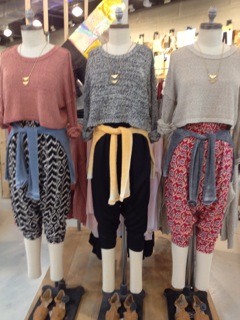We’ve all heard about the millennials – at 82 million strong in the U.S, they’re the key demographic for retailers – especially as they are projected to reach $1.4 trillion in annual spending by 2020. We’ve also heard that millennials dress too casually for work, and are relatively frugal. But what happens as they get older? Does this generation take such a different approach to dressing that traditional retailers can’t satisfy them? Are millennials and traditional retailers a mismatch?
Look at the evidence. The youngest of the millennial generation is just at post-college age now. They’ve aged out of the classic teen brands (e.g., Abercrombie & Fitch, Hollister, American Eagle) – but even when they were teens, many chose alternatives including Forever 21, Urban Outfitters, Free People and Wet Seal – not to mention TJ Maxx and other off-pricers. Why? Well, the economy of course – teen spending has been depressed for a number of years and few can afford to buy luxury items – or anything at full-price (especially when there’s a new hot tech item to buy).
But it’s not just the economy. It’s also a fashion shift – one that has moved millennials from “outfit dressing” (e.g., a head-to-toe look) to a more personalized approach where young women buy a number of different items from different brands and then put them together in their own way – not only personalized, but also in many cases deliberately mismatched. Want proof? Take a look at the “ugly-pretty” outfits on HBO’s hit show Girls. Or the mannequins wearing mismatched combinations at Urban Outfitters. As well as the extraordinary success of Nasty Gal.
What does that mean for traditional retailers as the millennials age into their 30s and 40s? Brands like Gap, Ann Taylor, White House Black Market, New York & Co. and Banana Republic are not going to be the millennials’ brands of choice – these women likely won’t dress in that way. But it’s not all bad news. There are a few traditional retailers that are embracing the personalized/mismatched approach – including Saturday (by Kate Spade), J. Crew and Madewell– which means it can be done. The question is, can other retailers follow suit? That remains to be seen.


Congratulations – it looks great and is sure to be yet another success!!